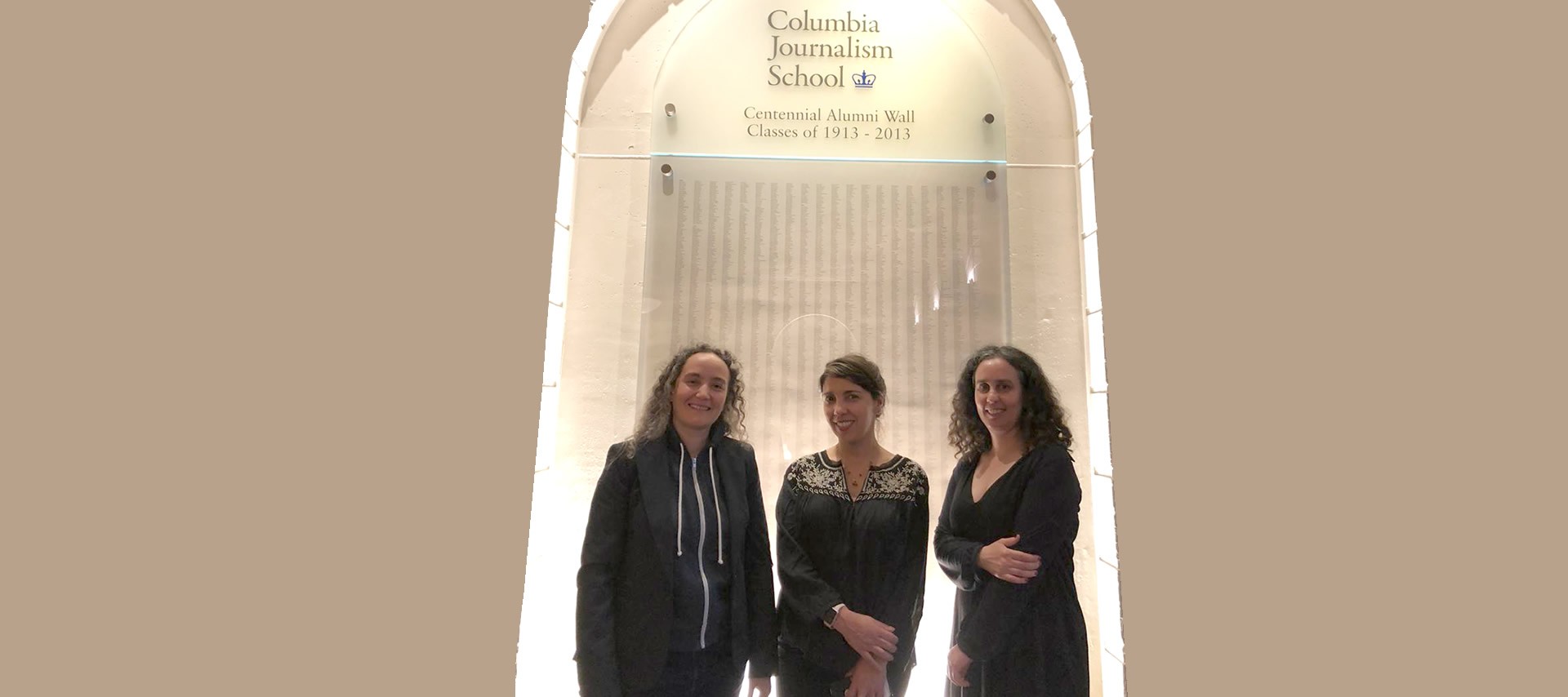Journalists Andrea Insunza, Paula Molina and Francisca Skoknic – creators of the news chatbot LaBot, the first of its kind in Chile – presented their project at Columbia School of Journalism’s Tow Center for Digital Journalism in New York City.
During the activity, Insunza (JN '13), Skoknic (SIPA '13) and Molina (Nieman '13) expounded on why they decided to create LaBot - an instant messaging service that delivers information, simulating a conversation with followers on Telegram and Facebook Messenger.
The journalists talked with the audience - students from the School of Journalism and from other Columbia University schools, as well as programmers and journalists - about their interest in using technology to inform citizens about complex issues. For example, they reviewed how LaBot covered the presidential and congressional elections in 2017 using the techniques of investigative journalism and data journalism, and the narrative of explainers and chronicles, but adapting their language to that of a chat.
In the exhibition, they showed how LaBot addressed issues such as presidential candidates’ asset statements, campaign donors, new electoral or financing rules and the history of voting in Chile, with the use of language adapted to messaging which included short texts, use of emoticons and GIFs. And they demonstrated how the chatbot works, through which users can respond to LaBot and maintain a conversation via chat.
The creators of LaBot also took advantage of the opportunity to announce that they had received a grant from the International Women's Media Foundation's Howard G. Buffett Fund for Women Journalists to further develop their robot.
The visit of Insunza, Skoknic and Molina to Columbia University is part of "The Future of Journalism" program, organized by the Columbia Global Center, the Columbia School of Journalism and the Journalism School of Chile’s Universidad de Diego Portales(UDP).
The development of LaBot was featured in Ya Magazine last year. Use this link to access the report, in Spanish.

